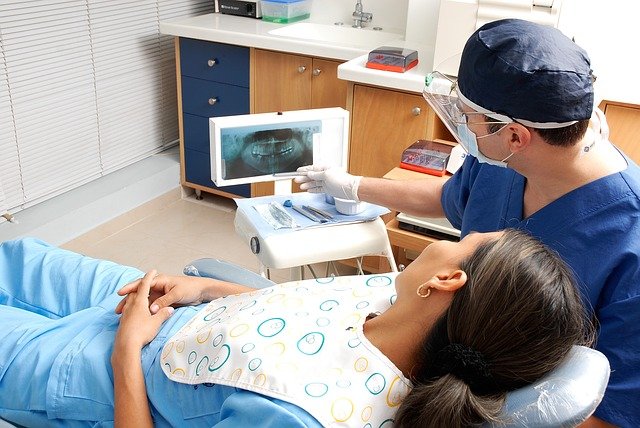When you think of impacted teeth, you probably think of wisdom teeth. The word “impacted” makes anyone who’s had their wisdom teeth taken out cringe—impacted wisdom teeth are more difficult to remove. However, these aren’t the only type of teeth that can be impacted.
Your maxillary canines can also be impacted. Unlike wisdom teeth, these teeth have an important role to play in your mouth. If you experience impacted canine teeth, it’s important to take the necessary steps to resolve the issue and protect the condition of your teeth moving forward.
An experienced Birmingham dentist can take care of impacted teeth for you and ensure their long-term preservation. Here’s some information you should know about dealing with impacted, problematic canine teeth.
Where are your canine teeth located?
Your canine teeth stand out due to their sharp, pointy appearance relative to the other teeth in your mouth. You have four in total, two on each the top and bottom of your mouth, located to the outside of your front four teeth.
Adult canines usually emerge between the ages of nine and 12, with the lower canines typically poking through first. For adolescence with crowding or a small jaw, impaction occurs when these teeth fail to fully erupt through the gum line.
What is an impacted tooth?
An impacted tooth is a tooth that is not able to break through the gums. There are two types of impactions:
- Partial impactions occur when teeth begin to break through, but cannot emerge fully.
- Fully impacted teeth are completely stuck below the gum line.
Teeth often become impacted when there simply is not space in the mouth for the tooth to grow in. This is why it’s important to address issues of teeth crowding with braces or other procedures—crowded mouths are more likely to have issues with impaction.
Aside from the teeth not appearing fully past the gumline, some of the other most common symptoms of impacted teeth include:
- Gums that are swollen, irritated or bleeding;
- Frequent issues with bad tastes in your mouth, or bad breath;
- Pain when you chew, bite or open your mouth.
These symptoms may persist for extended periods of time, or they might come and go.
Complications of impacted canine teeth
When you have impacted canine teeth, it’s problematic because of the important role these teeth play in eating and speaking. Your dentist will need to analyze the condition of your impacted canines to recommend treatments that cause them to come through the gumline. Removal is generally not an option dentists want to pursue.
Without treatment, patients will suffer from their impaction. There are a number of complications that can come with impacted canine teeth. These include:
- Cavities
- Infections
- Tooth crowding
- Tooth decay
- Gum diseases
These issues arise because you just can’t clean an impacted tooth properly. Think of how you care for your other teeth—brushing and flossing require the teeth to be fully above the surface. Impacted teeth will have their bacteria trapped below the gumline, which, over time, can cause some of the above complications to a serious degree.
A surgical approach to impacted teeth
There are some circumstances in which a dentist may order surgery to correct impacted canine teeth. This is especially likely to occur if you are experiencing pain as a result of the impaction, or if the other side effects are particularly nasty. And, if the impacted tooth has started to affect the condition of the other teeth in the area, there may be no choice but to opt for surgery.
Tooth extraction is an outpatient procedure that occurs under local anesthesia. It usually takes about an hour for your oral surgeon to perform, and could involve a full week of recovery (though you can return to most normal activities within several days).
Again, though, most dentists will want to explore non-surgical options first before they consider extraction. There are various eruption aids like braces, brackets and extraction of other teeth that can help the canines to break through and “erupt” as they should. These methods are most effective on younger patients, but can also be used for adults in some circumstances.
If these methods do not aid in eruption, the impacted tooth must be removed. After, the oral surgeon will likely recommend a bridge or dental implant. This is because canines are so important to your everyday oral function.
Schedule a consultation with Dr. Roberson
To learn more about the strategies you can use to deal with impacted canine teeth, contact Dr. Roberson, a highly respected Birmingham dentist capable of handling your oral health needs. Whether you’re the parent of a child with crowding or have an impacted canine you’ve been living with, getting professional attention will put you on the track to a lasting solution.

